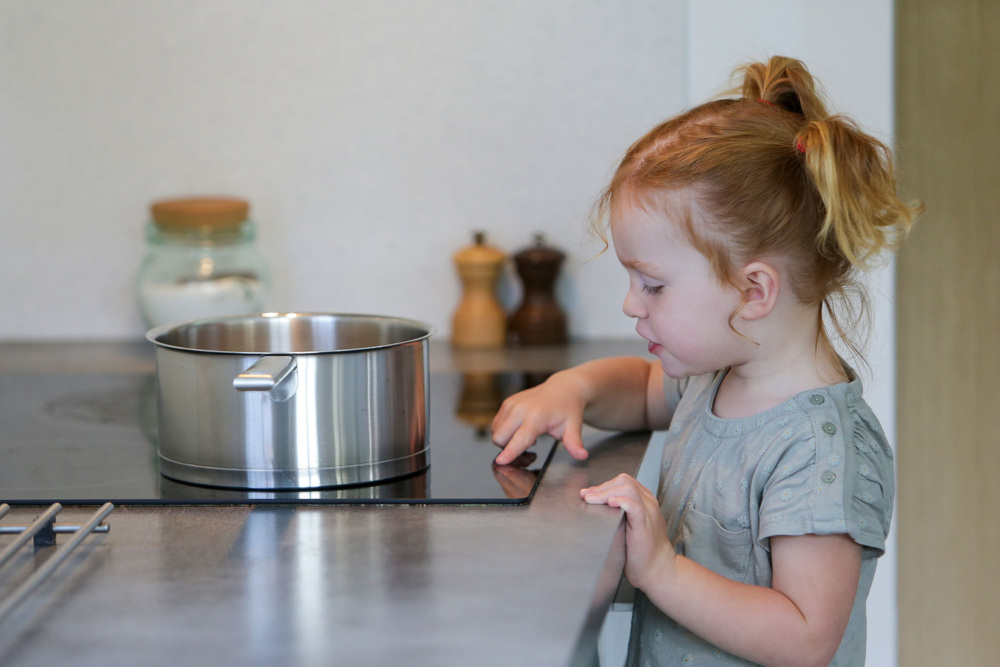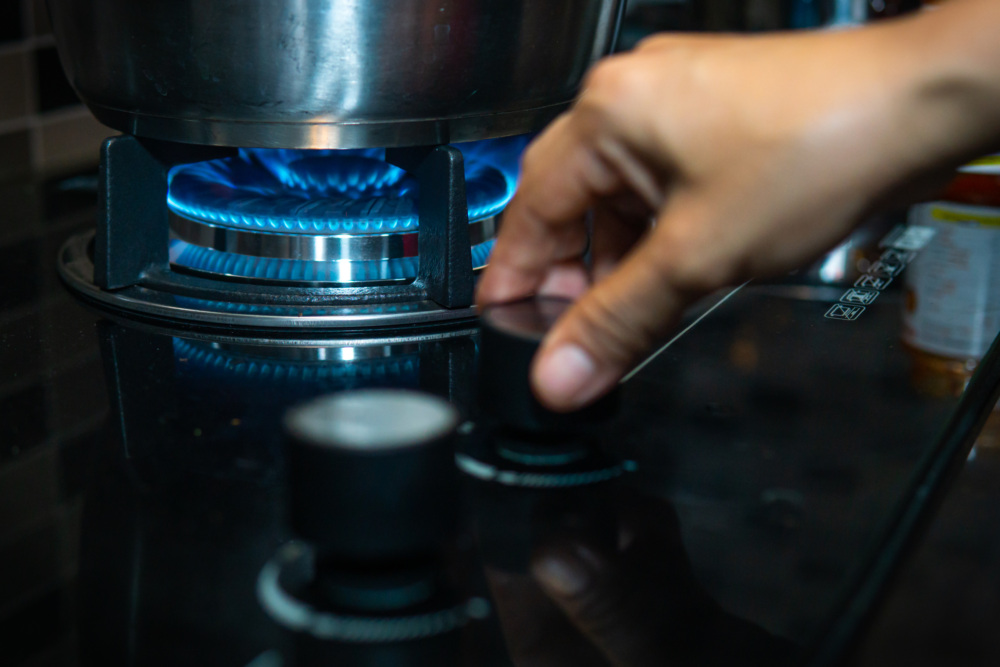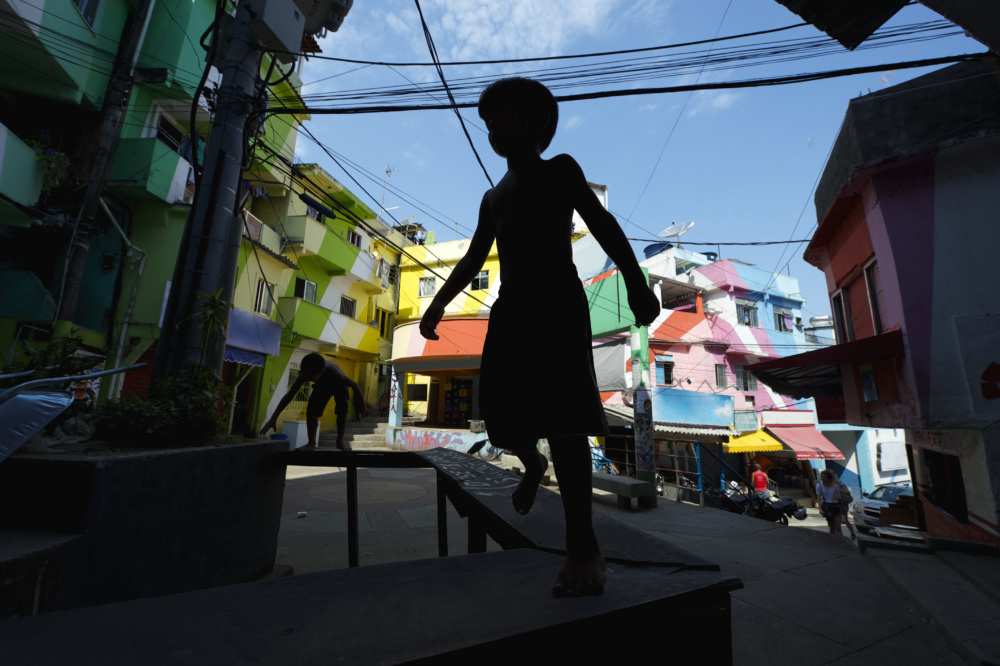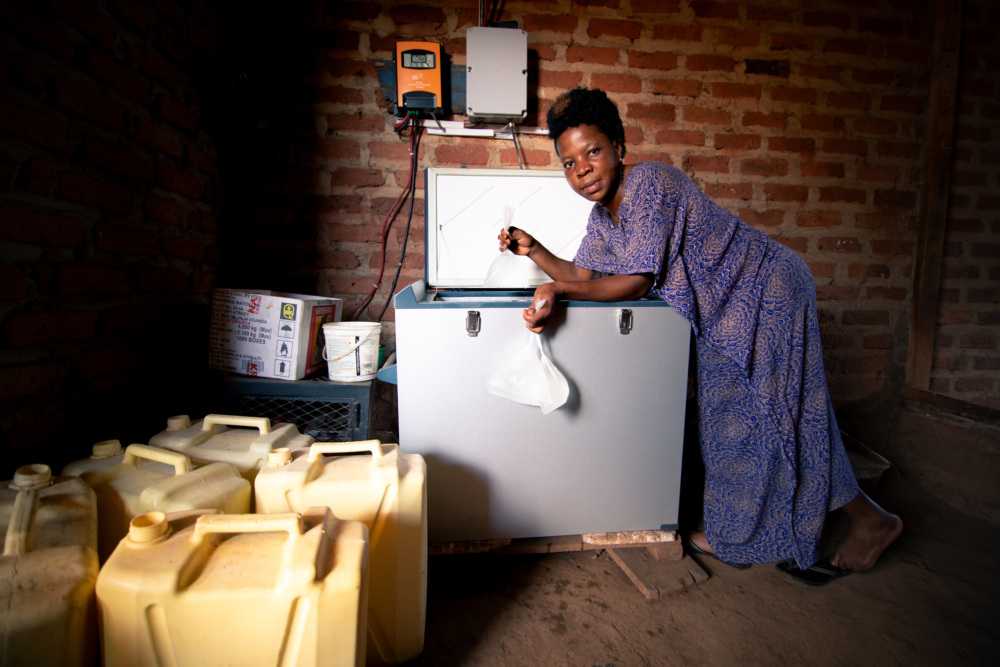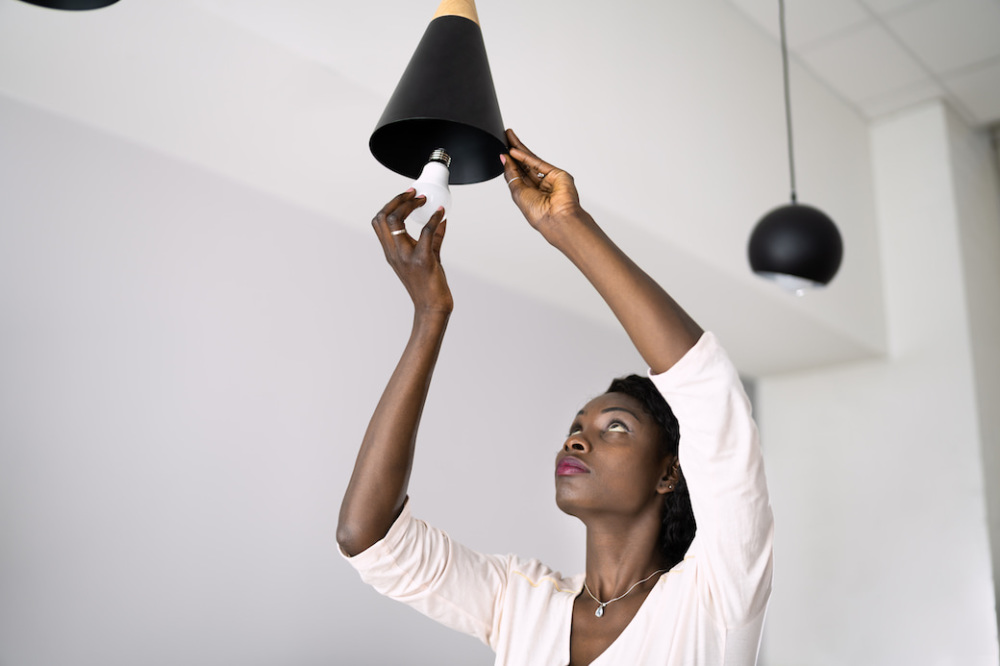Health
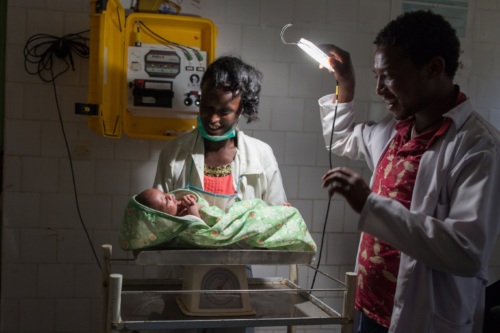
60% of health facilities in low- and middle-income countries lack access to reliable electricity, impeding the delivery of essential services.
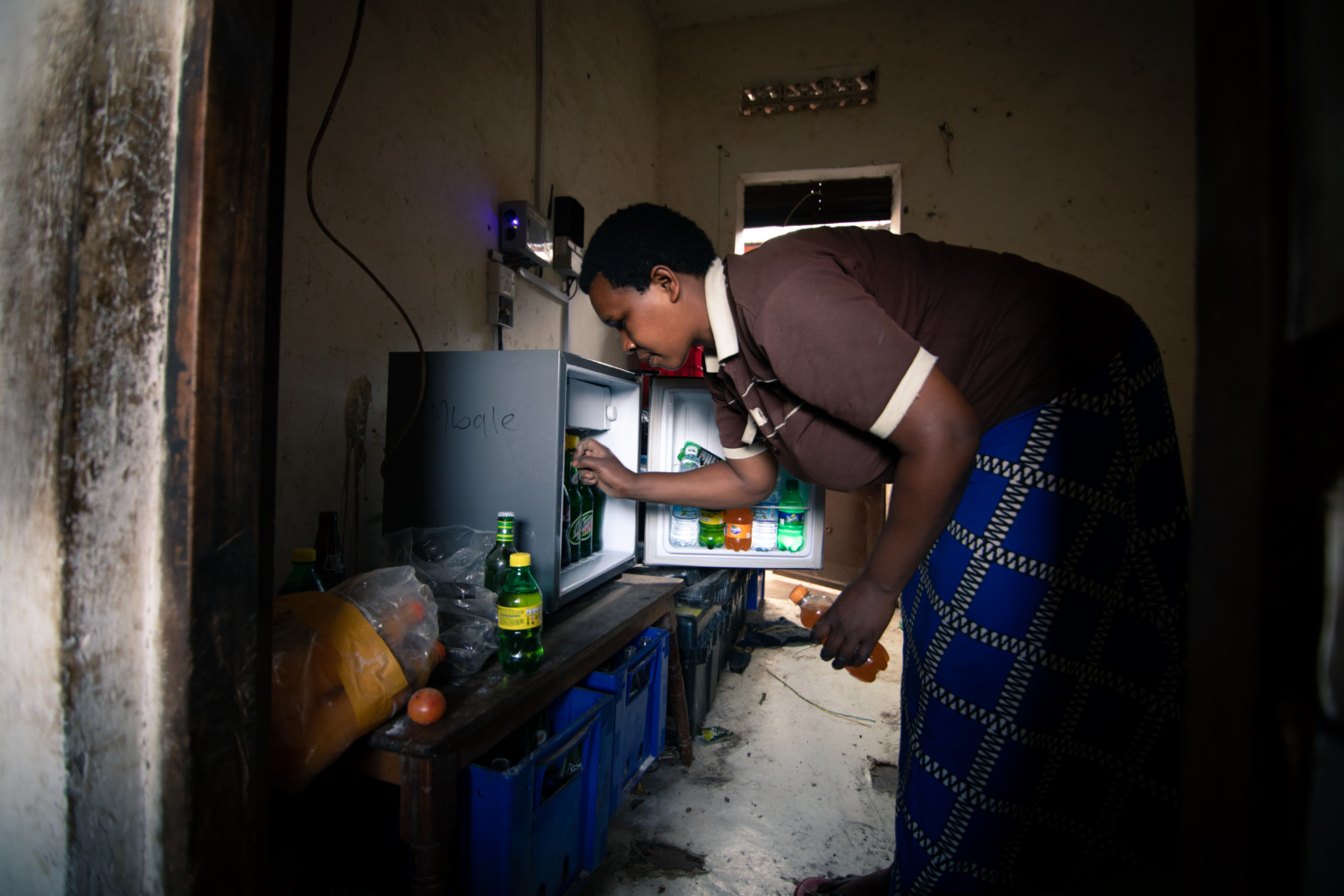
Appliances on the Frontlines of COVID-19 Response
As vulnerable off-grid communities face the health and socioeconomic impacts of COVID-19, appliances are at the frontlines of a global response. Around the world, families rely on their appliances to access critical public health information and shelter safely at home. An effective vaccine campaign is predicated on medical supply chains and clinics having access to electricity and refrigeration. CLASP, through the Efficiency for Access Coalition, works to ensure off-grid communities are not left behind by advocating for access to reliable energy and quality appliances.
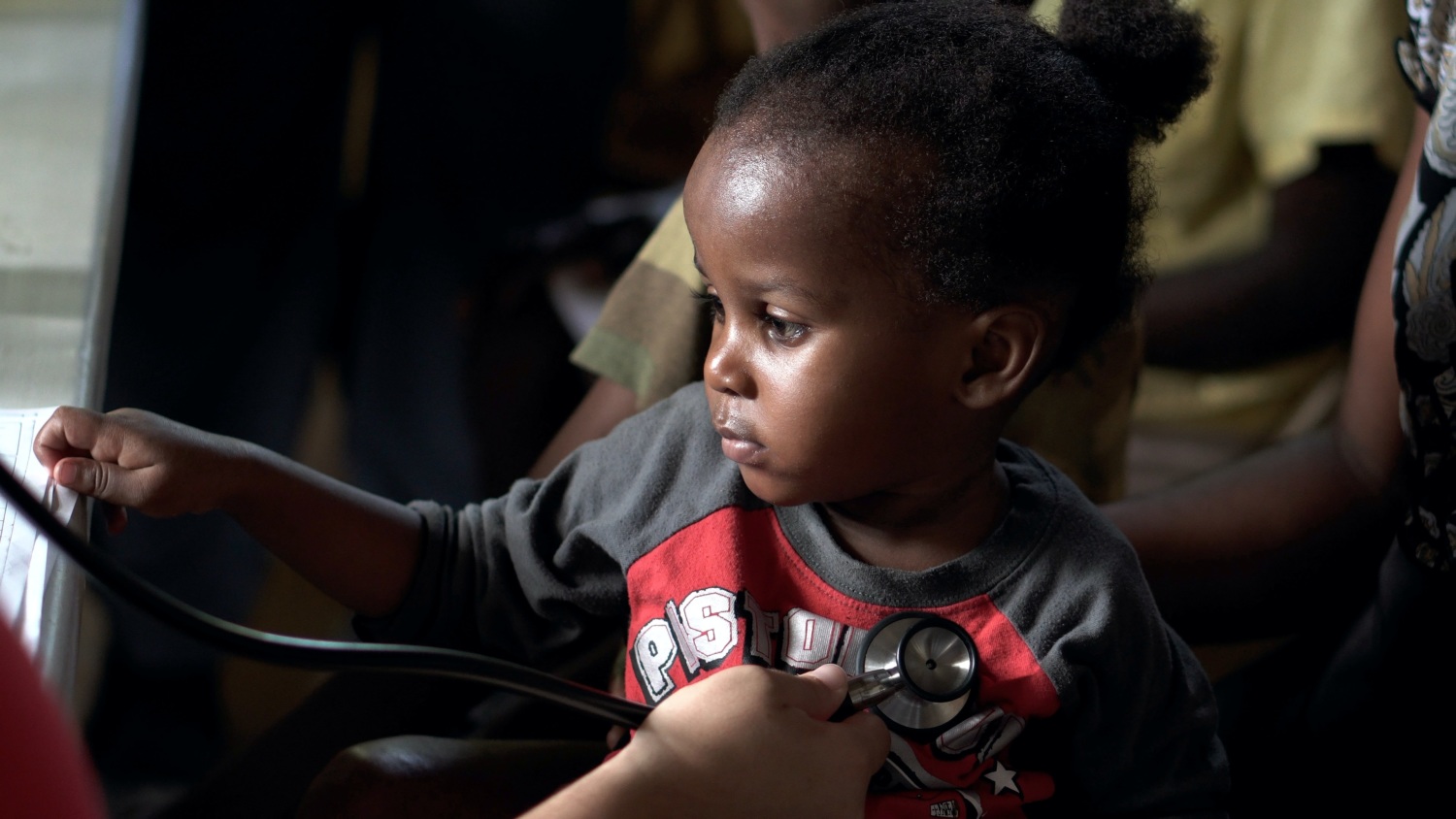
A super-efficient, off-grid appropriate vaccine refrigerator requires just 10% of the solar panel and battery capacity as a conventional vaccine refrigerator.
Health and Energy Efficiency
Tens of thousands of healthcare facilities in low- and middle-income countries lack access to electricity. Without electricity, clinics cannot utilize some of the most basic tools required to provide modern medical care. Solar power offers health care facilities a reliable energy alternative, however, many systems in use are oversized, expensive, and power inefficient, poor-quality devices. Durable, energy-efficient appliances allow clinics to deliver quality healthcare services while using significantly less energy and lowering costs by reducing the energy system sizes.
An energy-efficient refrigerator requires just 10% of the solar panel and battery capacity as a conventional vaccine refrigerator. Analysis from CLASP and the Clinton Health Access Initiative found that the size of the energy system required to power an inefficient vaccine refrigerator could power a far more expansive load when a super-efficient refrigerator is used alongside a suite of other super-efficient appliances and medical devices, including a pulse oximeter, autoclave/sterilizer, fetal heart monitor, four fans, ten lights, a radio, and 5 other devices.
Through the Efficiency for Access Coalition, CLASP is advocating for a suite of research and programmatic activities that expand and solidify linkages between energy access and health outcomes. This includes assessing the potential benefits of super-efficient appliances and devices for health service delivery in resource-constrained areas and identifying specific interventions with the potential to drive impacts at scale.
Improving Public Health Through High-Quality Appliances
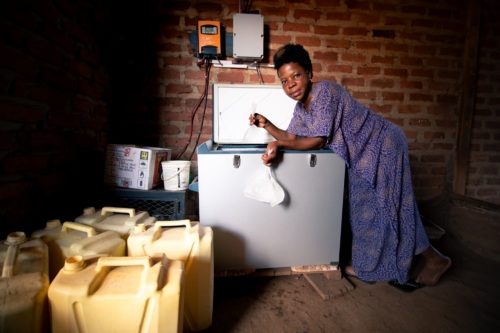
Refrigerators
Refrigeration is essential to maintaining the efficacy of vaccinations and extending the supply of perishable foods.
50% of vaccines are wasted globally every year, largely due to lack a of temperature control.
Improving Public Health Through Energy-Efficient Refrigerators
Millions of children remain unvaccinated against preventable diseases, largely due to a lack of access to cooling infrastructure. The World Health Organization estimates that 50% of vaccines are wasted globally every year; largely due to a lack of temperature control and the logistics to support an unbroken cold-chain. Expanding access to energy-efficient vaccine refrigerators would enable clinics with no or unreliable energy access to safely store life-saving vaccines.
Refrigerator ownership can also refrigerators promote diversified diets linked to healthier immune systems. A household study in Nairobi, Kenya found that refrigerators owners were 30% more likely to purchase fresh fruits and vegetables.
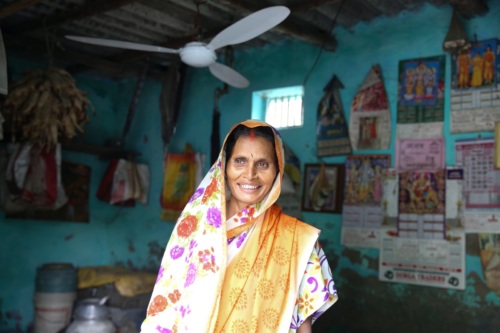
Fans
Fans provide life-saving relief from heatwaves and improve indoor air quality through improved ventilation.
In a survey of 1,600 off-grid fan customers in Bangladesh, 92% believed their fan had a positive impact on their family's health.
Providing life-saving relief from extreme heat and indoor air pollution
Hot and humid environments increase the risk of serious health conditions, such as heatstroke and temperature-related heart problems. Fans provide relief from extreme heat by removing warm air and replacing it with drier air that helps to reduce one’s body temperature.
Fans can also help improve indoor air quality by reducing pollution and the presence of mold-related allergens through improved ventilation. Biomass cooking and kerosene lamps create unhealthy indoor environments. By moving air around, fans could help lower the number of premature deaths attributed to indoor air pollution.
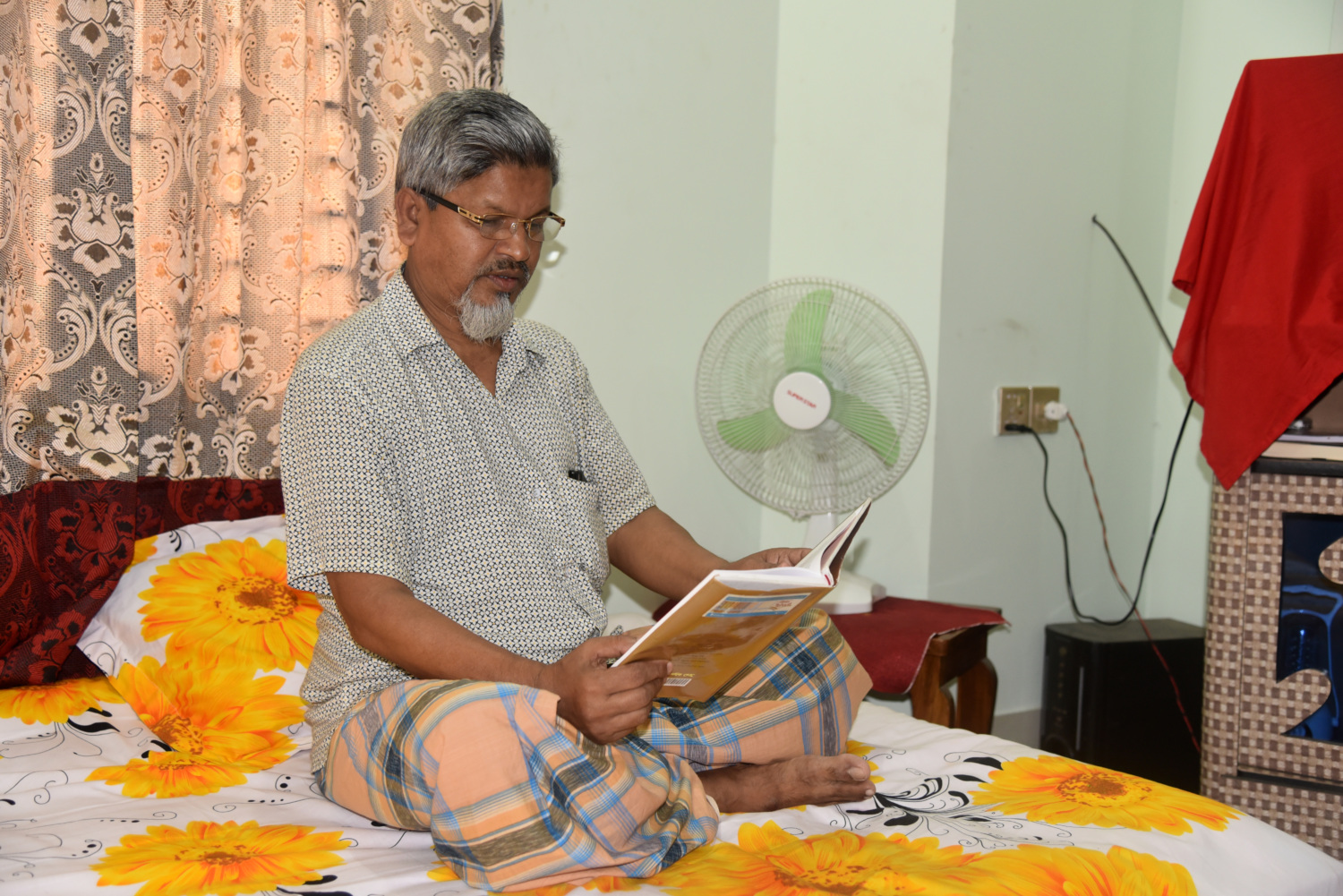
Security and Comfort in a Warming World
Fans can reduce mortality and morbidity during severe heat waves by preventing elevations in heart rate and core temperature driven by high temperatures. Read our latest blog post to learn how Fozle Rabbi, a solar customer, is using his fan to keep cool when the power grid goes out.

